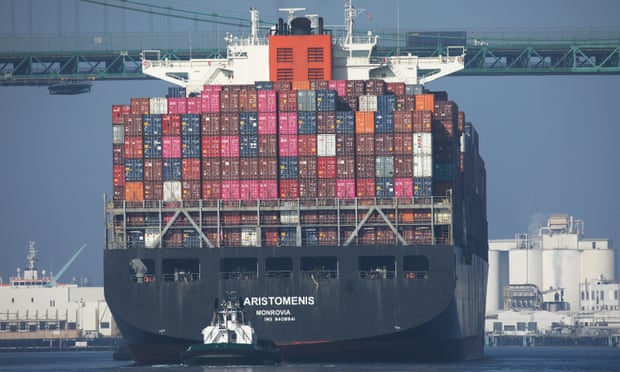President Trump says has not agreed to roll back tariffs on China
By Alexandra Alper and Andrea Shalal

WASHINGTON -- President Donald Trump on Friday said he has not agreed to rollbacks of U.S. tariffs sought by China, sparking fresh doubts about when the world’s two largest economies may end a 16-month trade war that has slowed global growth.
Officials from both countries on Thursday had said China and the United States have agreed to roll back tariffs on each others’ goods in a “phase one” trade deal.
But the idea of tariff rollbacks met with stiff opposition within the Trump administration, Reuters reported later on Thursday.
Those divisions were on full display on Friday, when President Trump -- who has repeatedly described himself as “Tariff Man” -- told reporters at the White House that he had not agreed to reduce tariffs already put in place.
“China would like to get somewhat of a rollback, not a complete rollback, ‘cause they know I won’t do it,” President Trump said.
Those divisions were on full display on Friday, when President Trump -- who has repeatedly described himself as “Tariff Man” -- told reporters at the White House that he had not agreed to reduce tariffs already put in place.
“China would like to get somewhat of a rollback, not a complete rollback, ‘cause they know I won’t do it,” President Trump said.
“I haven’t agreed to anything.”
He said China wanted to make a deal more than he did, adding that the U.S. tariffs were generating billions of dollars for U.S. coffers.
He said China wanted to make a deal more than he did, adding that the U.S. tariffs were generating billions of dollars for U.S. coffers.
“I’m very happy right now. We’re taking in billions of dollars,” he said.
U.S. stocks dipped after President Trump’s comments, and the dollar fell against the yen.
Trump also said the trade deal with China, if completed, would be signed in the United States. “Assuming we’d get it... it could be Iowa or farm country or some place like that. It will be in our country,” he said.
The farm state of Iowa has been hammered by the tariff war, and has hosted Chinese dictator Xi Jinping in the past.
Experts inside and outside the U.S. government warn the “phase one” trade pact could still fall apart. U.S. officials said a lot of work remained to be done when President Trump announced the outlines of an interim deal last month, and Beijing has since pushed back on U.S. demands for big agricultural purchases, among other issues.
President Trump has used tariffs on billions of dollars of Chinese goods as his primary weapon in the protracted trade war.
U.S. stocks dipped after President Trump’s comments, and the dollar fell against the yen.
Trump also said the trade deal with China, if completed, would be signed in the United States. “Assuming we’d get it... it could be Iowa or farm country or some place like that. It will be in our country,” he said.
The farm state of Iowa has been hammered by the tariff war, and has hosted Chinese dictator Xi Jinping in the past.
Experts inside and outside the U.S. government warn the “phase one” trade pact could still fall apart. U.S. officials said a lot of work remained to be done when President Trump announced the outlines of an interim deal last month, and Beijing has since pushed back on U.S. demands for big agricultural purchases, among other issues.
President Trump has used tariffs on billions of dollars of Chinese goods as his primary weapon in the protracted trade war.
The prospect of lifting them, even in phases, has drawn fierce opposition from advisers in and outside of the White House who remain wary of giving up a key aspect of U.S. leverage.
China in May scuttled a previous trade deal that U.S. officials said was 90% completed.
If an interim deal is finished and signed, it is widely expected to include a U.S. pledge to scrap tariffs scheduled for Dec. 15 on about $156 billion worth of Chinese imports, including cell phones, laptop computers and toys.
But China was also seeking cancellation of other U.S. tariffs put in place since January 2018.
China in May scuttled a previous trade deal that U.S. officials said was 90% completed.
If an interim deal is finished and signed, it is widely expected to include a U.S. pledge to scrap tariffs scheduled for Dec. 15 on about $156 billion worth of Chinese imports, including cell phones, laptop computers and toys.
But China was also seeking cancellation of other U.S. tariffs put in place since January 2018.
Chinese Commerce Ministry spokesman Gao Feng on Thursday said both countries must simultaneously cancel some tariffs on each other’s goods to reach the phase one pact.
Aucun commentaire:
Enregistrer un commentaire